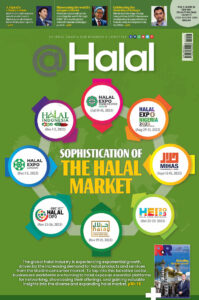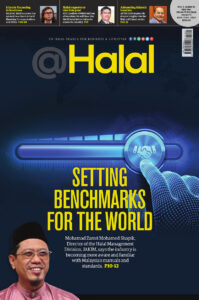A laboratory is a controlled room or structure where scientific equipment is installed to conduct research, analysis, calibration, or measurement.
The laboratory is to evaluate samples and, therefore, designed to detect, identify, and quantify contaminants and diseases.
The primary halal analysis methods are now focused on swine DNA detection and alcohol content.
Whether the halal laboratory is for business or government purposes, its operation is entirely based on international guidelines and standards to assure the reliability of the test results.
Chief Executive Officer of SpyGene Abdul Rahman Wahiduddin said SpyGene Laboratories (SpyGene), a subsidiary of Revongen Corporation and incorporated in June 2021, aims to be a pioneer halal diagnostic clinical laboratory service provider.
SpyGene Laboratories
SpyGene, a new clinical and molecular laboratory company, has several main divisions: Hematology, Clinical Chemistry and Immunoassay, Microbiology, Urinology and Molecular divisions.
“SpyGene provides diagnostic laboratory testing such as Rt-PCR for not only Covid-19 but for other tests such as dengue and other infectious diseases,” said Abdul Rahman.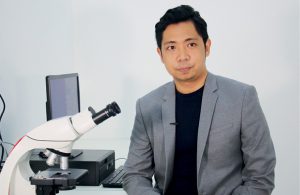
“Routine blood screening such as glucose and cholesterol test monitoring and other regular blood tests are also provided by SpyGene.”
SpyGene commenced operations in October with six people, including the lab manager, lab technicians, and administrators.
Pioneering halal-certified clinical laboratory
Besides being a pioneer as a halal-certified clinical diagnostic laboratory service provider, Abdul Rahman is hopeful to have a lab in each State.
“We recognise the challenges of healthcare providers to send samples due to geographical reasons. With our partners on board, we believe we can help solve those issues.
“To be the pioneer a halal-certified clinical laboratory speaks for itself of how we differentiate ourselves from other laboratories.”
SpyGene’s critical partners are Mindray Medical, Chemopharm Sdn Bhd and DoctorOnCall.
SpyGene is based at Enterprise 1, Technology Park Malaysia.
It also collaborated with Halvec Laboratories to get Halal Clinical Laboratory status.
“Once we comply with the requirements, we will open a lab in each State to ensure we can connect with clinics and healthcare providers nationwide.
“We are also hoping to work with partners in Southeast Asia and the Middle East. SpyGene certainly looks forward to revolutionising clinical laboratory service.”
Adopting halalan toyyiban
Halalan toyyiban is best described as allowed and permissible as long as it is Shariah-compliant, safe, and non-harmful.
In manufacturing, the equipment should not be contaminated by najis, according to Shariah law. Manufacturers are required to comply with ISO, CE and authority regulations.
“I believe the system is in place, and the challenge is to ensure it complies with Shariah law.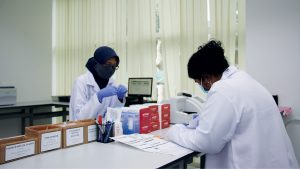
“We are lucky to have our ecosystem in place and strategic partners to support us in achieving our goals.
“Ensuring SpyGene complies with halalan toyyiban requires us to work with manufacturers, suppliers and adopt standard operating procedures.
“Our discussion with manufacturers are at an initial level. We are looking forward to our sister company, Halvec Laboratories, to advise us on being Shariah-compliant,” said Abdul Rahman.
Halal certification influences international sales of medical devices and pharmaceuticals. Abdul Rahman opined that the halal clinical diagnostic laboratory was the new realm of clinical laboratory services.
“Indonesia, Pakistan and India have the most significant number of Muslims.
“Malaysia can be the first country to introduce halal clinical laboratory services to the world and further strengthen Malaysia’s status as the leading halal hub.”
Rahman added no additional costs would be incurred as there was already an existing ecosystem and support from the supply chain.
“As we are working towards achieving a halal standard, we ensure our suppliers and manufacturers can help defray some of the costs.”
Implementing Islamic requirements
“Thankfully, we have end-to-end support with Revongen Corporation being our holding company, Halvec Laboratory as our sister company, Vivantis Technologies as a research company, and manufacturers such as Mindray Medical and Chemopharm Sdn Bhd.
“Our strategic partners have the same ideology and direction as us and are committed to supporting the idea.”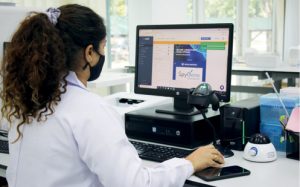
Challenges in halal development
The biggest challenge is in implementation.
“In medical, we deal with samples such as blood, pus, stools and urine. And our machines are mainly from China and Europe.
“We need to get every party aligned so that there is no compromise. They all have to understand halalan toyyiban to make sure the concept works.” 



